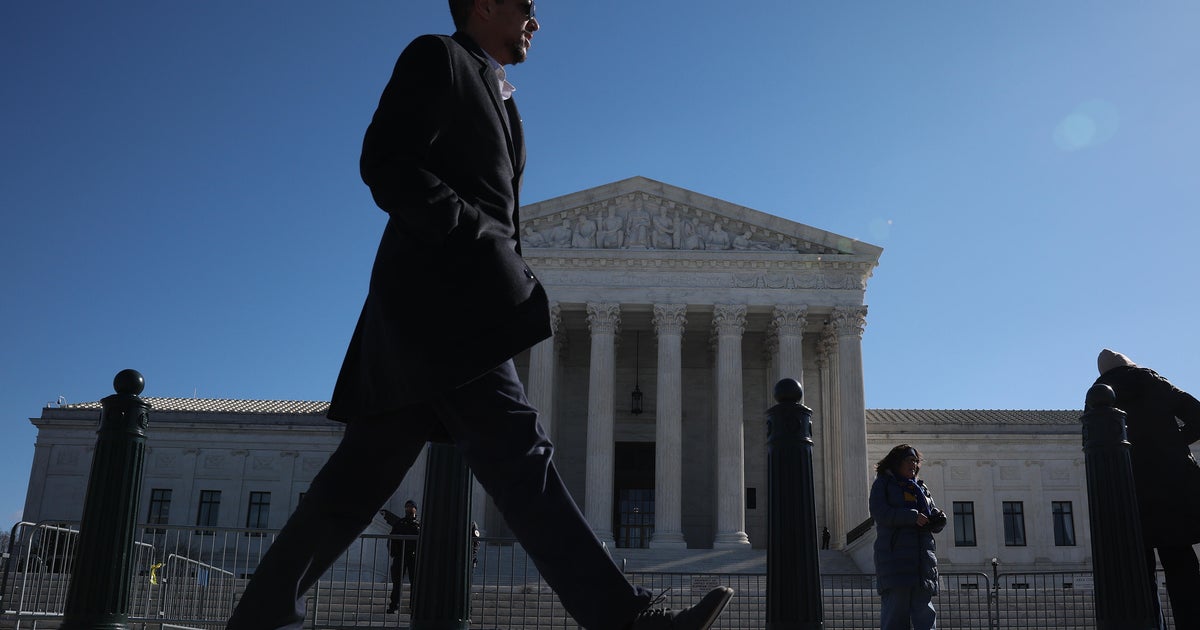Justice Ruth Bader Ginsburg warns of "sharp divisions" in upcoming Supreme Court cases
Supreme Court Justice Ruth Bader Ginsburg warned that hotly anticipated upcoming decisions by the Supreme Court may be split along 5-4 votes. Ginsburg spoke to the judicial conference of the U.S. Court of Appeals for the 2nd Circuit in New York on Friday, noting that while only a quarter of the court's decisions so far have been divided, that pattern is likely to change.
"Given the number of most-watched cases still unannounced, I cannot predict that the relatively low sharp divisions ratio will hold," Ginsburg said. There are five conservative and four liberal justices on the Supreme Court, meaning that the conservatives can stick together to create a slim majority in controversial cases.
With Supreme Court business set to conclude by the last week of June, there are several key cases which remain undecided. One critical case is on the Trump administration's decision to add a citizenship question to the 2020 Census. Critics argue that adding such a question could deter non-citizens from self-reporting, which in turn could lead to an undercount of primarily Hispanic voters in Democratic states. This could affect congressional apportionment and benefit rural, more Republican states.
In the weeks since the case was argued before the court, this suspicion has been bolstered by the revelation that a Republican expert on gerrymandering had advocated for adding the question in order to benefit "Republicans and Non-Hispanic Whites." A report released this week found that the census could undercount more than 4 million people, particularly in Latino and African American communities.
In the arguments before the court earlier this year, the conservative Supreme Court justices appeared skeptical that adding a citizenship question could be lead to an under-count of non-citizens. Justice Neil Gorsuch, a Trump appointee, noted during the arguments that many other countries include citizenship questions on their censuses, according to The Associated Press. It's possible that the five conservative justices could rule in favor of the administration in the coming weeks. Ginsburg called the case one of "huge importance."
Other critical cases, which have yet to be decided, are political and racial gerrymandering from Virginia, Maryland and North Carolina. The court must decide whether gerrymandering state legislative and congressional districts in order to dilute the power of a certain party or people of a certain race violates a person's voting rights.
"Given modern technology, a state legislature can create a congressional delegation dramatically out of proportion to the actual overall vote count," Ginsburg said, according to The Washington Post, adding "however one comes out on the legal issues, partisan gerrymandering unsettles the fundamental premise that people elect their representatives, not vice versa."
The Supreme Court will also make a decision on a case regarding jury selection bias, Flowers v. Mississippi, in which a black death row inmate was convicted and sentenced to death after the prosecutor dismissed five prospective jurors.



